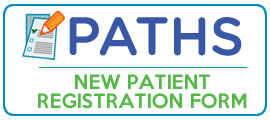What does a respiratory therapist do?
Respiratory therapists treat patients who have breathing difficulties due to cardiopulmonary (heart-lung) problems. The field of respiratory therapy has been transitioning from its roots in technology to a role that more closely resembles disease management. Treatments include temporary or long-term therapy for lung disorders such as asthma, COPD (emphysema and chronic bronchitis), lung cancer, cystic fibrosis, or pneumonia and emergency care for those with heart failure, chest injuries, stroke, shock, premature birth or post-surgical complications. Work is usually in hospitals, skilled nursing facilities, patients’ homes, physicians’ offices and outpatient facilities.
Although registered and certified, respiratory therapists share many similar duties. Registered respiratory therapists typically have broader responsibilities and are more involved in patient assessment and critical care management. Additionally, registered respiratory therapists are afforded greater opportunities for advancement and promotion.
What might a respiratory therapist do in a workday?
- interview patients and perform chest physical exams to determine the best kind of therapy for their condition.
- consult with physicians to recommend a change in therapy based on evaluation of the patient.
- analyze breath, tissue and blood specimens to determine levels of oxygen and other gases.
- set up, adjust, and manage life-support equipment in critical care units.
- manage ventilators and artificial airway devices for patients who cannot breathe normally on their own.
- educate patients and their families about lung disease so they can maximize their recovery.
- administer medical gases and drugs to help improve patients’ breathing.
- assist in the delivery and emergency transport of critically ill newborns.
- conduct breathing tests in laboratories to assist in diagnosing respiratory illness.
- assist in the diagnosis and treatment of sleep disorders.
- become members of a pulmonary rehabilitation team helping patients with chronic respiratory diseases to breathe more efficiently.
- utilize hyperbaric oxygen therapy.
How much does a respiratory therapist earn?
- $40,000 - $73,000
How do I become a respiratory therapist?
Students interested in these careers should take math and science courses while still in middle school and high school. Certification is necessary to obtain a license to practice. Some employers require registry.
Respiratory therapists must have a minimum of an associate degree and graduate from a program accredited by the Commission on Accreditation for Respiratory Care. CoARC accredits professional respiratory care degree programs at the associate-, baccalaureate- and master’s-degree level in the U.S. and internationally. To practice as a respiratory therapist in Virginia, a graduate must pass a national exam administered by the National Board for Respiratory Therapy to earn a Certified Respiratory Therapist (CRT) credential. Graduates are eligible to earn the Registered Respiratory Therapist (RRT) credential.
Where else can I learn about becoming a respiratory therapist?
American Association for Respiratory Care
9425 MacArthur Boulevard, Suite 100 / Irving, TX 75063-4706
tel: (972) 243-2272 / web: www.aarc.org
The Virginia Society for Respiratory Care
977 Seminole Trail PMB 327 / Charlottesville, VA 22901-2824
web: www.vsrc.org
State Licensure Requirements for Respiratory Therapists:
A license is required to practice as a respiratory therapist in the state of Virginia. For more information on licensure, applications and forms, visit www.dhp.virginia.gov/medicine.
Virginia Board of Medicine
Perimeter Center
9960 Mayland Drive, Suite 300 / Henrico, VA 23233
Phone: (804) 786-0370 / Email: medbd@dhp.virginia.gov


